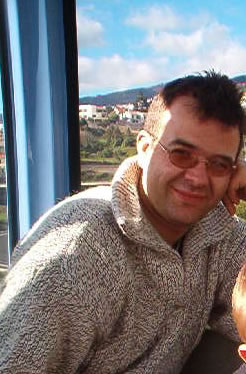Why me, Why here, Why now?
Dealing with cranks is an occupational hazard for most scientists, but it's especially bad for physicists and astronomers. Those who study the cosmos for a living tend to be bombarded with letters, calls and emails from would-be geniuses who insist they have refuted Einstein or devised a new theory of gravity or disproved the Big Bang. The telltale signs of crankdom are so consistent — a grandiose theory, minimal credentials, a messianic zeal — that scientists can usually spot them a mile off. That's why the case of James Gardner is so surprising. He seems to fit the profile perfectly: he's a Portland, Ore., attorney, not a scientist, who argues — are you ready for this?--that our universe might have been manufactured by a race of superintelligent extraterrestrial beings. That is exactly the sort of idea that would normally have experts rolling their eyes, blocking e-mails and hoping the author won't corner them at a lecture or a conference.
But when Gardner's book Biocosmcame out last year, it carried jacket endorsements from a surprisingly eminent group of scientists. "A novel perspective on humankind's role in the universe," wrote Martin Rees, the astronomer royal of Britain and a Cambridge colleague of Stephen Hawking's. "There is little doubt that his ideas will change yours," wrote Seth Shostak, senior astronomer at the Search for Extraterrestrial Intelligence (SETI) Institute in California. "A magnificent one-stop account of the history of life," wrote complexity theorist John Casti, a co-founder of the Santa Fe Institute. Since then, Gardner has been welcomed at major planetariums and legitimate scientific conferences, explaining his ideas to a surprisingly interested public. It's not that anyone actually buys Gardner's theory. He admits it's "farfetched," and even those scientists who find it stimulating think it's wildly improbable. But it does have one thing in its favor. The biocosm theory is an attempt, albeit a highly speculative one, to solve what just might be science's most profound mystery: why the universe, against all odds, is so remarkably hospitable to life.
(www.time.com) Continue reading
Quite logical this one. Excellent Read.
... Last year a Stanford theorist named Shamit Kachru set out with some colleagues to calculate just how many different universes one particular version of string theory could produce. The number he came up with was a 1 followed by something like 100 zeros; roughly a hundred billion billion times the number of atoms in our universe...


No comments:
Post a Comment